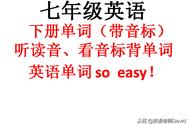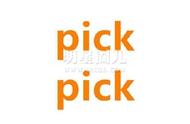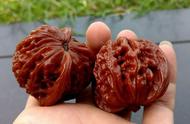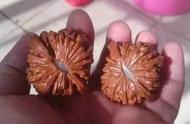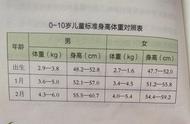Hi there, and welcome back to engVid.
嗨,欢迎回到engVid。
Today we are looking at phrasal verbs for complimenting someone and criticizing them.
今天我们来讲讲赞美或批评某人的动词短语。
So, I'm wearing a clue as in what I'm wearing today, which should give you a clue as to which one I might be looking at on this board over here.
我是带着一个小提示来的,就像我今天的穿着一样,会给大家一个提示,我会在这个黑板上给大家展示出来。
Which one do the costumes give you the clue to?
我的衣服能给大家什么样的提示呢?
Well done: I am raving about.
那就是:我在胡说八道。
Okay, so this lesson should help you both in the professional world to, you know. . .
这堂课不仅有助于你改善在职场生涯中所做的评价,
Appraisals, we have to give opinions at work in a delicate and sensitive manner; but also in a social way, you know, to get things better, we compliment and we suggest improvements.
我们在工作中必须以一种微妙又敏感的方式发表意见;还能在社交方面,让我们赞赏和改进的提议变得更好。
To make sure that you're not just sitting there like a couch potato, and that you're going to learn and have some fun in today's lesson, I thought I'd play a quick game with you before we actually come on to the learning points.
为了确保你不会像个呆瓜一样坐在那里,你会在今天的课上有所收获并享受到其中的乐趣,我想在真正开始学习之前,和大家玩一个小游戏。
So what I want you to do is stand up.
我想叫你们做的就是站起来。
If you are sat down in a chair in front of the computer, just stand up and just going to be a series of instructions that you're going to have to try and follow.
如果你坐在电脑前的椅子上,请站起来,你得试着按照一连串的提示去做。
Up for it?
准备好了吗?
Good.
好的。
Okay, so we're standing.
我们站起来了。
So, when I say: "Go", I want you to walk on the spot. Go. And then when I say: "Stop", you're going to stop. Stop. Now, when I say: "Stop", you're going to go; and when I say: "Go", you're going to stop. Stop. Go.
当我说:“走”,我就是想让你们走起来。走。当我说:“停”,你就要停下来。停。当我说:“停”,你就要走起来;当我说:“走”,你就要停下来。停。走。
Very good.
非常好。
Okay, I'm going to give you one more practice.
我们再练习一下。
Ready?
准备好了吗?
Stop. Go. Okay. We're going to make it a little bit more interesting now, we're going to include a couple more instructions.
停。走。好的。现在我们再来点更有趣的,我要加入更多的指令。
So, when I say: "Clap", you're going to jump;and when I say: "Jump", you're going to clap.
当我说:“拍手”,你就要跳;当我说:“跳”,你就要拍手。
Okay?
好吗?
Stop.
停。
Clap. Jump. Go. Very, very good.
拍手。跳。走。非常非常好。
I think we're all ready, awake, switched on, brain in gear, ready to learn.
我认为大家都准备好了,清醒了,蓄势待发了,准备好开始学习了。
Okay, so, I thought we'd talk about me today, Benjamin.
我今天本来想跟大家聊聊我自己,Benjamin。
We're always talking about random people and their story, so today we're going to talk about me.
我们总是在谈论随机的人及他们的故事,今天我们来聊聊我自己。
So, if I was "to find favour with you", it means. . .
如果我想“得到大家的青睐”,意思就是...
Well, we can see that the word "favourite". . .
我们能看到这个单词“favourite(喜爱的)”...
So I would become a favourite of yours.
我会成为你们的宠儿。
"To find favour".
“为了讨好你们”。
"Favour" means a good feeling.
“青睐”意思就是感觉很好。
"To look up to", so obviously some of you are going to veer more on that side of the board, but some of you might look up to some of the teachers on here, and think: "Yes, thank you, teacher, sometimes you teach me something".
“敬仰”,很明显,你们中的一些人会更倾向于黑板的另一边,但另一些人可能会倾向于这侧,并想:“是的,谢谢老师,你有时总能教我点东西。”
"To look up to", so we're looking up.
“敬仰”,所以我们仰视某人。
Okay?
好吗?
Like that person is on a pedestal.
就好像某个偶像一样。
Okay?
懂了吗?
Like they are on a. . .
就像是他们...
"To put someone on a pedestal" means to value them highly,which links to this phrase: "To speak highly of someone".
“把某人放入神坛”意思就是评估某人的价值高,与这个短语相关联:“高度赞扬某人”。
If I speak highly of someone, it means that I say good things about them.
如果我高度赞赏某人,意思就是我夸他们好。
So, if you speak highly of me, you tell your friends: "Benjamin on engVid, he teaches me good things.""To butter up", so. . .
如果你高度赞赏我,你告诉你的朋友说:“engVid的Benjamin,他教会了我好东西。”“为了讨好”,那么...
"To butter", so there's a sense here that we're trying to make the person listen to us, we're trying to make that person sweet.
“为了讨好”,这就会有一种感觉,我们尽量让那个人听我们的话,我们尽量让那个人感觉棒棒的。
You know, toast on its own is not very nice, but with a bit of butter it becomes easier to eat.
烤面包本身不算好东西,但加点黄油就更容易吃下去了。
So, if you butter up to someone, maybe you're trying to get them to do something.
如果你拍某个人的马屁,可能你就是在想求这个人帮你做点什么。
If you butter up to me, maybe you're writing a message on the forum, saying: "Benjamin, dah-dah-dah-dah-dah", and that's buttering up.
如果你想夸赞我,也许你就会在论坛上写一些评论,说:“Benjamin,布拉布拉布拉布拉”,这就是夸赞我。
"To hand it to".
“夸赞”。
So, we would use this a little bit like: "Oh, I've got to hand it to you. That was fantastic. I've got to hand it to you".
就是,用这句话好像是在说:“我不得不夸夸你。太棒了。你真的太棒了”。
"To hand it to" means to give credit.
“夸赞”表示以示赞扬。
To give credit.
表扬。
If you hand it to me, then it's like: "Yeah, Benjamin, that was good."
如果你夸我,会像这样:“Benjamin,太棒了。”
Don't worry, you'll get to say bad things in a moment.
别担心,你还能学会说些坏话。
If you give me a "pat on the back"-okay?
如果你给我一个“轻拍背部”-懂了吗?
-that means well done.
-意思就是不错。
"To pat on the back" means to congratu-. . .
“轻拍背部”就是恭...
To congratulate.
恭喜。
"To take your hat off to", okay?
“把你的帽子摘下来”,对吧?
So that is a symbol of respect, to take your hat off.
这是一个尊重的象征,摘掉你的帽子。
There's a. . .
有一个......
So we're harking back to sort of Victorian manners, here, where a gentleman would take their hat off as a form of respect to another person.
我们回到维多利亚时代的礼节,一位绅士脱下帽子以示对另一个人的尊敬。
We still have this reference here in our way of speaking.
在我们的交谈方式中,我们也有这方面的参考资料。
"To take your hat off to" means to show respect.
“摘掉你的帽子”表示以示尊敬。
"To wax lyrical about", kind of an unusual phrasal verb, this one.
“对谁抒情”,这是个不寻常的动词短语。
So,"wax" we get in a. . .
“蜡”...
Do you know what wax makes?
你知道蜡能做什么么?
It makes candles.
能做成蜡烛。
"Wax lyrical", so we can see the word, the shorter word in the big word: "lyric", write a song, so you're kind of using a candle to write a song, you're kind of making something sound quite good.
“抒情地”,你可以看到这个单词,一个长单词的缩写:“抒情的”,写一首歌,你用蜡烛写歌,你让某件事听起来不错。
If you wax lyrical about Benjamin on engVid, you're saying: "Benjamin, engVid lessons, fantastic, blah, blah, blah, blah, blah".
如果你在engVid上对Benjamin抒情,你会说:“Benjamin,engVid课程,太棒了,布拉布拉”。
And, of course, if you "rave about", then you're really excited,you're full of enthusiasm and you're just really loving it.
当然,如果你“大肆吹嘘”,你真的很激动,你满怀热情,你真的很热爱它。
But it does sort of refer to speaking about someone.
但它确实指的是谈论某人。
So, you know, why not tell someone about Benjamin on engVid?
你知道,为什么不把engVid的Benjamin告诉某人呢?
Criticism.
批评。
If I've been a bad boy, if I've been a bad man and I haven't taught you well, then you may be criticizing me instead of praising me.
如果我是个坏小子,如果我是个坏人,我教的不好,那么你可能会批评我,而不是夸赞我。
You might say: "Benjamin, you're such a show off. You show off. What is this strange outfit that you are wearing?""Screw up", now, this is slightly more American English than it is British English, but I've included it anyway.
你可能会说:“Benjamin,你真是个卖弄的人。你在炫耀。你穿的这身奇怪的衣服是什么?”“搞砸了”,现在,这在美式英语中用的比英式英语中要多一点,但我还是把它包括进去了。
"To screw up".
“搞砸某事”。
So, it means kind of to make a mess.
意思是弄得一团糟。
So if my board was all: "Uhl-uhl-uhl", it's like: "Benjamin, you've screwed up, man. That is not a good lesson."Okay?
如果我的板书都是:“一堆垃圾”,你可能会说:“Benjamin,你搞砸了。这堂课一点不好。”懂了吗?
"To screw up" means to make a mess.
“搞砸”就是弄得一团糟。
"To measure up".
“度量”。
I don't know if you've seen my video about going to the hairdresser, but I had a ruler, a metal ruler with inches and centimetres on.
我不知道你是否看过我去理发店的视频,我有一把尺子,一把带英寸和厘米的金属尺子。
"To measure up".
“度量”。
So you're sort of evaluating.
你在进行某种度量。
So you'd be. . .
你可能......
You'd say something like: "Benjamin, you've been measured up, and you've been found wanting."Okay?
你可能会这样说:“Benjamin,我们衡量过你了,你是有问题的。”懂了吗?
I'm going to write that in.
你会把这类话写进去的。
"You have been. . . You have been measured up, and you have been found wanting".
“我们衡量过你了,你是有问题的。”
"Found wanting" means. . .
“有缺陷”意思是......
Okay, I'm looking for something good, but I'm still looking for something good and I'm still wanting something good that's not there.
我在找一些好东西,我还在找一些好东西,我还想要一些尚未找到的好东西。
"You have been measured up, and found wanting."Okay?
“我们衡量过你了,你是有问题的。”懂了吗?
"What are you playing at?"Okay?
“你在玩什么呢?”懂了吗?
So this expresses confusion.
这表示混淆。
"Playing", without this preposition, okay?
“玩”,没有介词,对吧?
Nice and innocent.
善良而无辜。
Put that preposition "at" next to it: "Playing at", it expresses a sense of not very happy with this;it's quite strange.
把介词放在后面:“玩什么”,它表达非常不高兴的感受;这特别不寻常。
"What are you playing at?"Okay, let's just put a line there.
“你玩什么呢?”好的,我们画一条线在这。
So, these next four are about being quite mean to me, about being quite nasty.
接下来的四句话表示对我很刻薄,对我很下流。
So, if you "pick on", okay?
如果你“挑逗”,懂了么?
So you pick, you pick a scab, you pick on. . .
你挑一块结痂......
If you're picking on, then you're being quite unpleasant.
如果你在挑逗,就是你太不招人喜欢了。
"Pick on" makes me think of sort of school and bullies, okay?
“挑逗”让我想到校园欺凌,懂了吗?
So, we don't. . .
我们不......
We don't want to. . .
我们不想......
You to pick on me.
让你挑逗我。
If you "lay into someone", then you really have lots of different criticisms, you lay in, you say: "This is wrong, this is bad, this is wrong."
如果你“欺骗某人”,那么你真的会得到各种批评,你撒谎,你会说:“这不对,这样不好,这是错的。”
Of course that's never going to happen with me, is it, loyal subscribers?
当然这绝不会发生在我身上,这是忠实听众吗?
Because I would feel quite "run down", you would have run me down.
因为我会觉得很“累”,你也会把我累死的。
Benjamin would be feeling very sad, and he wouldn't come back and make the next video for a very long time, so you better watch out.
Benjamin会感到难过,他不会再回来了,很长时间都不录新视频了,你最好小心点。
Okay?
懂了吗?
"To rub something in", so it. . .
“擦拭某物”,就是......
You would think it's something nice, rubbing something in.
你会认为这是好的事物,在擦拭它。
Maybe you're rubbing some ointment in, but we use it. . .
也许你在擦药膏,但我们把它用在......
Like a special potion.
某种特殊的药剂上。
We use it to say that we're repeating this bad news, we're repeating this criticism.
我们用它来表示,在重复某个坏消息,重复这个批评言论。
If you rub something in, you say: "Benjamin, you're bad. Benjamin, you're bad."
如果你在擦某物,你可以说:“Benjamin,你不好。Benjamin,你太坏了。”
Rubbing it in, you're saying it again and again and again.
擦拭某物,你反复、反复、反复的说。
Okay?
懂了吗?
But you know, me being me, that I will always "hit back", I will always bounce back and then you'll come back to giving me lots of praise and finding favour with me, looking up to me, speaking highly of Benjamin on engVid.
但你知道,我就是我,我总会“恢复”的,我总会恢复过来的,然后你还会回来给我很多的赞扬,得到我的青睐,敬仰我,在engVid上高度赞扬Benjamin。
Hope you've enjoyed today's lesson.
希望大家喜欢今天的课程。
Until next time, press "Subscribe", say good things, and take today's quiz.
下次课见,点击“订阅”,说些好话,做一下今天的小测验。
All the best.
祝你好运。
I'll see you on the next video. Bye.
下次视频课见。再见。
,
